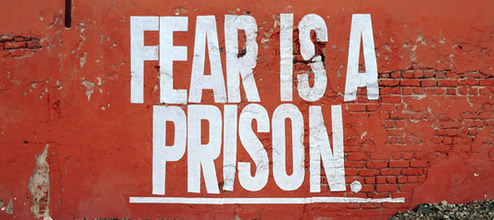Will the constitution in the making help bring about free and fair elections in Zimbabwe? Will it help restore democracy? Will it provide the political checks and balances that are crucial for real democracy? Many think not. There’s already talk that the next election in Zimbabwe will bring about GNU the Sequel. What is waiting in the wings is yet another elite political deal made between two parties too attached to power and position, than honouring the democratic process.
Here is an article by Dale Dore. Worth a read I think.
What is David Coltart saying?
In his reply to Ben Freeth’s letter, David Coltart said that the land provisions are “racially discriminatory and should never be in any modern democratic constitution.” He also said that even worse than these land provisions was that “far too much power is still vested in the executive.” In other words, the constitution abrogates fundamental human rights and does not contain the necessary checks and balances to constrain Presidential powers. Yet, Coltart argues that we cannot “pick and choose” which elements we like, and urges us to accept the constitution in its entirety or risk subverting the whole process. His argument is baseless on a number of counts.
The first is that human rights and the separation of powers, amongst others, are not minor elements but the core pillars upon which a democratic constitution stands or falls. Remove one of those pillars and the whole edifice of the constitution crumbles. Equally worrying, is that the constitution specifically contradicts the rulings of the SADC Tribunal which were based on international customary law and the Vienna Convention on the Law of Treaties. As ZANU(PF) systematically discredited and dismantled the Tribunal, the MDC did nothing but maintain a shameful silence. Now Coltart is asking the people to do that same: turn a blind eye to grievous flaws inserted into the constitution at the behest of those who militate against the Tribunal and international law.
The second argument Coltart uses is that if we do not accept this deeply flawed document we will play into the hands of ZANU(PF) hardliners. But, hold on a minute … are the people of Zimbabwe being asked to judge the draft constitution on its own merits or to make a political decision? Is Coltart asking us to blindly accept the founding law by which we are to be governed, and to vote along party lines for a document conceived through an elite political pact? Just because Jonathan Moyo is rejecting it for political reasons, do the people of Zimbabwe also have to accept it for political reasons? But there is more. By my reading of the constitution, the MDC has already played into the hands of the hardliners by capitulating on human rights, executive powers, and the question of justice.
The third argument on which Coltart can be challenged is his notion that the draft constitution will lead to more accountability, more democracy, and the loss of power by hardliners. This is an odd claim given that, by Coltart’s own admission, the new constitution makes “the fundamental error of thinking that men can be trusted with power.” Indeed, it is possible that such unconscionable executive powers could remain in the hands on Robert Mugabe or his successor. If so, this is hardly likely to lead to a loss of power by hardliners. But even this misses a central point. The constitution (whether it is the new or old) and the rule of law are irrelevant to hardliners. If Robert Mugabe blatantly disregarded the last constitution, why should he abide by the new one? By what constitutional authority, for example, does the President instruct the police to defy court orders and ignore their constitutional duty to protect the people from atrocities committed by his party supporters? The truth of the matter is that they subverted the old constitution and then inserted the offending clauses in the new draft constitution. Is this what Coltart’s is trying to sell us as “an all out bid to protect people”?
The fourth argument Coltart advances is his now infamous line that “we just do not have any other options.” This is his ‘killer quote’ to convince any doubters that unless we, like the MDC, compromise with a regime that has brought nothing but poverty, humiliation and misery – and which created a Diaspora that has conveniently been denied the vote – matters will only get worse. The MDC won elections and ceded power because ‘they had no other option’; they legitimised the seizure of farms based on race because ‘they had no other option’. When Mugabe refused on budge on any GPA reforms, they joined him by calling for the removal of sanctions because ‘they had no other option’. Although the MDC has given in on almost every major political decision, including principles of natural justice, Coltart denies the charge of appeasement. Instead, he claims there is no non-violent “practical alternative”. Perhaps this is because he mistakes non-violence for pacifism and collusion rather than as a mode of struggle and resistance against tyranny.
But now, we the people do have an option to decide upon whether or not to adopt the draft constitution. We must deliberate and discuss the merits and flaws of the draft constitution rigorously and openly. We must decide whether any president should be trusted with such sweeping constitutional powers. If necessary, we should sink this rickety and leaky ferry and start afresh with a sturdy and seaworthy vessel of state that can confidently withstand the constitutional gales and storms that lie ahead. But, above all, we must not be blackmailed into accepting the unacceptable.
Dale Doré
Harare, 28 July 2012










